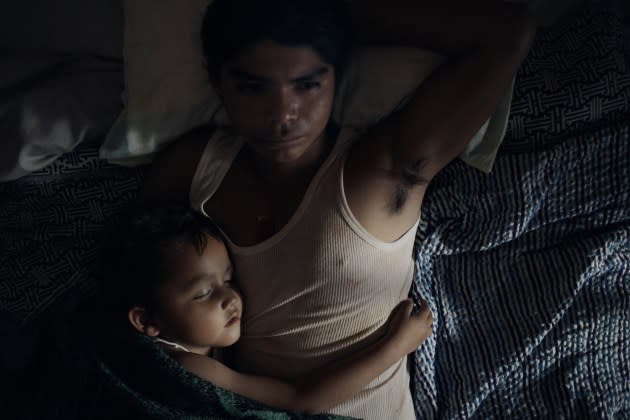Alpha Violet Propels ‘Identifying Features’ Directors’ Unconventional Sundance-Winning Cartel Narrative ‘Sujo’ to Cross Borders (EXCLUSIVE)

Premiering in January to a Sundance Dramatic World Cinema Grand Jury Prize, “Sujo” from “Identifying Features” filmmakers Astrid Rondero and Fernanda Valadez has expanded its global reach, closing multiple distribution deals forged by Paris-based Alpha Violet, who heads international distribution.
Paris-based Damned Films has picked up the title for France while Twelve Oaks Pictures, Trigon Films, Cinobo and MCF Megacom have swooped on the film for Spain, Switzerland, Greece and Cyprus and Ex-Yugoslavia territories respectively, with Auckland’s Vendetta Films securing rights to the title for the Australia and New Zealand markets.
More from Variety
The sales outfit, who co-produced the title alongside Valadez and Romero’s EnAguas Cine, Mexico’s Corpulenta and California’s Silent R Management, have also negotiated a TV deal with HBO Europe on top of closing a recent sale to Mexico and Latin American via Cinepolis. UTA is assisting with the domestic U.S. market.
“It’s been incredibly gratifying to reteam with Astrid and Fernanda on ‘Sujo.’ From the win at Sundance to the overwhelmingly positive response we’ve gotten from audiences and buyers around the world, it’s clear that the story of ‘Sujo’ resonates across cultures and time zones,” Virginie Devesa, co-head of Alpha Violet, told Variety.
The plot focuses on the collateral damage inflicted by drug cartels by following young Sujo (Kevin Uriel Aguilar Luna, Juan Jesús Varela), who grows up in the wake of their violence. Inherited trauma and the loss of innocence make for a heart-wrenching coming-of-age tale that questions the fortitude to move forward in the wake of lifelong tragedy and the pressure to ascribe to the brutally traditional roles passed down in communities undernourished and starved of opportunity.
“The cartel’s way of life, its myths and its characters, has penetrated all areas of culture and society in our country. That cartel culture presents itself as tales of resistance and coming out of poverty. But that image is a complete manipulation, a trap for young people because most of the kids who are recruited end up dead before they turn 25 and their families remain in deep adversity,” Rondero and Valadez remarked during an interview with Variety in January.
Avoiding a sympathetic or glamorous take on gang violence, the filmmakers manage a stark look at the importance of community when it comes to saving future generations from the grasp of organized crime, a revelatory narrative that doesn’t shy from insisting on a sliver of hope alongside simmering fear and despair.
Best of Variety
From 'The Idea of You' to 'Apples Never Fall': The Best Book-to-Screen Adaptations to Read This Year
Sign up for Variety’s Newsletter. For the latest news, follow us on Facebook, Twitter, and Instagram.

 Yahoo News
Yahoo News 